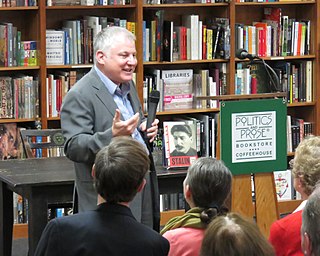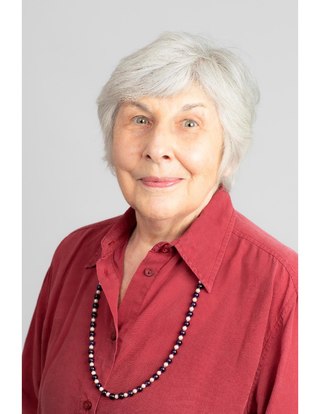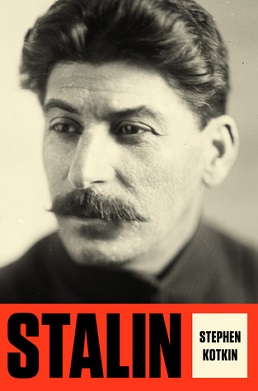Related Research Articles
Soviet and communist studies, or simply Soviet studies, is the field of regional and historical studies on the Soviet Union and other communist states, as well as the history of communism and of the communist parties that existed or still exist in some form in many countries, both inside and outside the former Eastern Bloc, such as the Communist Party USA. Aspects of its historiography have attracted debates between historians on several topics, including totalitarianism and Cold War espionage.
The Life and Labor Commune was a Tolstoyan agricultural commune founded in 1921 and disbanded as a state run collective farm on 1 January 1939. The commune was founded near Moscow but was later resettled in central Siberia, not far from Novokuznetsk. At its peak, it reportedly had as many as 1,000 participants. Throughout its existence the members of the commune were persecuted by the Bolsheviks, both for refusing to enlist or support their war efforts as well as for organizing themselves communally outside of the approved state structure.

Stephen Mark Kotkin is an American historian, academic, and author. He is the Kleinheinz Senior Fellow at the Hoover Institution and a senior fellow at the Freeman Spogli Institute for International Studies at Stanford University. For 33 years, Kotkin taught at Princeton University, where he attained the title of John P. Birkelund '52 Professor in History and International Affairs; he took on emeritus status from Princeton University in 2022. He was the director of the Princeton Institute for International and Regional Studies and the co-director of the certificate-granting program in History and the Practice of Diplomacy. He has won a number of awards and fellowships, including the Guggenheim Fellowship, the American Council of Learned Societies, and the National Endowment for the Humanities Fellowship. He is the husband of curator and art historian Soyoung Lee.

The Association for Slavic, East European, and Eurasian Studies (ASEEES) is a scholarly society "dedicated to advancing knowledge about Central Asia, the Caucasus, Russia, and Eastern Europe in regional and global contexts." The ASEEES supports teaching, research, and publication relating to the peoples and territories within this area.

Ronald Grigor Suny is an American-Armenian historian and political scientist. Suny is the William H. Sewell Jr. Distinguished University Professor of History Emeritus at the University of Michigan and served as director of the Eisenberg Institute for Historical Studies, 2009 to 2012 and was the Charles Tilly Collegiate Professor of Social and Political History at the University of Michigan from 2005 to 2015, William H. Sewell Jr. Distinguished University Professor of History (2015–2022), and is Emeritus Professor of political science and history at the University of Chicago.

Sheila Mary Fitzpatrick is an Australian historian, whose main subjects are history of the Soviet Union and history of modern Russia, especially the Stalin era and the Great Purges, of which she proposes a "history from below", and is part of the "revisionist school" of Communist historiography. She has also critically reviewed the concept of totalitarianism and highlighted the differences between Nazi Germany and the Soviet Union in debates about comparison of Nazism and Stalinism.
Wayne S. Vucinich was an American historian. Following World War II, he was one of the founders of Russian, Slavic, East European and Byzantine studies at Stanford University, where he spent his entire academic career.
Mark Bassin is a geographer and specialist on Russian and German geopolitics. He is currently employed as a professor in historical and contemporary studies at Södertörn University.

Oleg Vitalyevich Khlevniuk is a Russian historian of the Soviet Union.
Kate Brown is a Professor of Science, Technology and Society at Massachusetts Institute of Technology. She is the author of Manual for Survival: A Chernobyl Guide to the Future (2019), Dispatches from Dystopia (2015), Plutopia (2013), and A Biography of No Place (2004). She was a member of the faculty at the University of Maryland, Baltimore County (UMBC) from 2000 to 2018. She is the founding consulting editor of History Unclassified in the American Historical Review.
Alexei Vladimirovich Yurchak is a Russian-born American anthropologist and professor of anthropology at the University of California, Berkeley. His research concerns the history of the Soviet Union and post-Soviet transformations in Russia and the post-Soviet states.
Alexander S. Vucinich was an American historian. He taught at the department of history and sociology of science at the University of Pennsylvania from 1976 until his retirement in 1985. He also taught at San Jose State College (1950–64), the University of Illinois (1964–70), and the University of Texas (1970–76). After his retirement he and his wife Dorothy moved to Berkeley, California, where he participated in the activities of Berkeley's Institute of Slavic, East European, and Eurasian Studies. His field of research was the history of science and social thought in Russia and the Soviet Union.
This is a select bibliography of post-World War II English-language books and journal articles about Stalinism and the Stalinist era of Soviet history. Book entries have references to journal reviews about them when helpful and available. Additional bibliographies can be found in many of the book-length works listed below.
This is a select bibliography of English language books and journal articles about the post-Stalinist era of Soviet history. A brief selection of English translations of primary sources is included. The sections "General surveys" and "Biographies" contain books; other sections contain both books and journal articles. Book entries have references to journal articles and reviews about them when helpful. Additional bibliographies can be found in many of the book-length works listed below; see Further reading for several book and chapter-length bibliographies. The External links section contains entries for publicly available select bibliographies from universities.

Stalin: Paradoxes of Power, 1878–1928 is the first volume in the three-volume biography of Joseph Stalin by American historian and Princeton Professor of History Stephen Kotkin. It was originally published in November 2014 by Penguin Random House and as an audiobook in December 2014 by Recorded Books. The second volume, Stalin: Waiting for Hitler, 1929–1941, was published in 2017 by Penguin Random House.

Everyday Stalinism or Everyday Stalinism: Ordinary Life in Extraordinary Times: Soviet Russia in the 1930s is a book by Australian academic Sheila Fitzpatrick first published in 1999 by Oxford University Press and in paperback in 2000. Sheila Fitzpatrick is the Bernadotte E. Schmitt Distinguished Service Professor (Emeritus), Department of History, University of Chicago.

Below is a list of post World War II scholarly books and journal articles written in or translated into English about communism. Items on this list should be considered a non-exhaustive list of reliable sources related to the theory and practice of communism in its different forms.
Adeeb Khalid is associate professor and Jane and Raphael Bernstein Professor of Asian Studies and History in the history department of Carleton College in Northfield, Minnesota. His academic contributions are highly cited.
Francine Hirsch is an American historian, specializing in modern Europe with a focus on Russia and the Soviet Union. She is a recipient of the Herbert Baxter Adams Prize for her book, Empire of Nations: Ethnographic Knowledge and the Making of the Soviet Union, as well as honors from the American Society of International Law, the Council of European Studies, and the Association for Slavic, East European, and Eurasian Studies for her work.
Krista A. Goff is an American historian of Russia and the Soviet Union, who specializes in Soviet nationality politics and the history of the Caucasus in the 20th century.
References
- 1 2 Lewis Siegelbaum, profile @ MSU website
- ↑ ABBREVIATED CURRICULUM VITAE OF LEWIS H. SIEGELBAUM (archived)
- 1 2 3 Людмила Новикова, Записки очарованного ЛЮДМИЛА НОВИКОВА О ВОСПОМИНАНИЯХ ЛЬЮИСА Г. СИГЕЛЬБАУМА, book review
- ↑ Broad Is My Native Land online: JSTOR 10.7591/j.ctt1287dtp
- ↑ CITATIONS FOR PAST WINNERS OF THE REGINALD ZELNIK BOOK PRIZE
- ↑ MERLOT Awards: Exemplary Classics
- ↑ PAST WINNERS OF THE ED A HEWETT BOOK PRIZE
- ↑ PAST WINNERS OF THE REGINALD ZELNIK BOOK PRIZE IN HISTORY